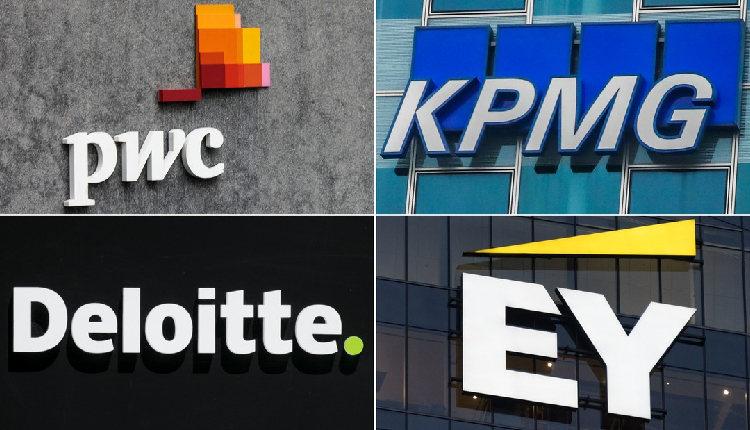China's Financial Clampdown: The Aftermath of Evergrande
China's Ministry of Finance has escalated its regulatory scrutiny of the Big Four audit firms following the financial scandal involving property giant Evergrande. The intensified checks reveal broader concerns about financial transparency.
Published July 11, 2024 - 00:07am

Image recovered from en.amwalalghad.com
China's Ministry of Finance is intensifying its regulatory scrutiny on the Big Four accounting firms—Deloitte, EY, PwC, and KPMG—amid growing concerns about the quality and effectiveness of their audits. This heightened vigilance follows a regulatory probe into the collapse of China Evergrande, a property giant that defaulted on its debts after inflating its revenue by $78 billion.
The tighter scrutiny, which has not been previously reported, focuses primarily on the audits of financial firms, highly leveraged companies, and smaller lenders in debt-ridden provinces. This move is part of a broader crackdown by Chinese authorities to tackle financial fraud and protect the fragility of the country's struggling stock markets.
The Ministry of Finance is particularly concerned about the ability of these auditing firms to uncover corporate wrongdoing. The Evergrande saga has brought to light potential gaps in the auditors' capabilities, which further risks eroding confidence in China's financial systems. According to insiders familiar with the matter, the ministry has demanded far more documentation from the Big Four firms, and the number of inquiries the audit firms have had to respond to has increased significantly.
Experts believe that the Ministry's actions are spurred by fears of wider exposure in the financial sector to the ongoing real estate market crisis. There is a compelling need to accurately assess the financial health of companies, particularly those with significant exposure to bad loans and high levels of leverage. This move, according to Francine McKenna, founder of accounting and auditing newsletter The Dig, is indicative of the ministry's rightful concern about vulnerabilities within China's financial service sectors.
The clampdown includes comprehensive checks on audits performed by the Big Four firms, with particular attention to small, weak lenders in debt-laden provinces and major state-owned enterprises. Audits of asset management companies are also under the microscope. This intensity of scrutiny follows earlier punitive actions against Deloitte, which was fined $30.8 million last year by Chinese authorities for failing to adequately assess asset quality at China Huarong Asset Management.
More recently, PwC is reportedly facing a record fine of at least 1 billion yuan ($138 million) due to its shortcomings in auditing Evergrande. These fines underscore the broader regulatory effort to ensure that financial audits reflect a true and transparent picture of a company's financial health.
The increased oversight comes at a time when several Chinese property developers have defaulted on their debts in the wake of Evergrande's downfall, which has further hobbled economic growth. The collapse of such a significant player in the real estate market has triggered alarms about the broader implications for the financial sector, particularly regarding the extent of bad loan exposures and leverage levels among financial firms.
China's regulators have vowed to step up their fight against financial fraud to shore up confidence in its stock markets, which have been hit hard by the real estate crisis. This ramped-up scrutiny appears to be the ministry's way of reinforcing the integrity and reliability of financial audits in the country.
The increased focus on rigorous auditing practices also signals China's broader intent to open its economy further to foreign investors. As Chinese companies seek listings in Hong Kong and overseas, there is an increasing need for transparent and reliable financial reporting, which is essential for attracting global investment.
However, this intensified regulatory environment also reflects a growing skepticism about the efficiencies of the Big Four auditing firms, which have carved out a substantial presence in China over the past few decades. Their role in recent financial debacles has put them under a harsh spotlight, calling into question their effectiveness and accountability.
While the Big Four firms have not publicly commented on the increased regulatory scrutiny, the heightened oversight emphasizes the need for improved auditing standards and practices. The Ministry of Finance's actions may serve as a wake-up call for audit firms globally, highlighting the consequences of failing to adequately assess and report financial risks.
The situation remains fluid, with potential legislative changes on the horizon aimed at bolstering China's financial regulatory frameworks. This ongoing saga serves as a reminder of the crucial role that audit firms play in maintaining financial stability and investor confidence.






/https://assets.iprofesional.com/assets/jpg/2024/10/586422_landscape.jpg)
